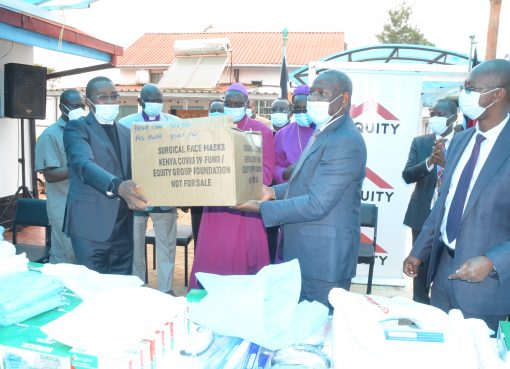
Outdated cultural practices among pastoralist communities in Marsabit County has been cited as the drawback in the fight against Female Genital Mutilation (FGM).
The stand was reached by stakeholders at a one day summit on FGM organized by the Anti-FGM Board of Kenya at a Marsabit hotel.
Participants at the meeting which brought together various interested parties who included elders, religious leaders and women from across the county observed that the practice was still thriving among locals despite the residents being aware of its dangers.
The Marsabit Women’s Advocacy Development Organization (MWADO) Chief Executive Officer, Nuria Gollo expressed concern that the practice which he termed as retrogressive was 99 per cent practiced among all local pastoralist communities.
“The most disturbing thing is that our community is still practicing FGM even though they know the risks involved,” Ms.Gollo pointed out, adding that there was need for research to be conducted to establish why FGM was widespread despite regulations being in place.
Various speakers at meeting implored women to be in the forefront in opposing the customary practice as some participants felt that women were being used to perpetuate FGM.
Religious leaders present described the practice as outdated and called on local communities to embrace alternative rites of passage for the girl child.
Sheikh Abdullahi Hussein said there were no benefits attached to the practice and that the teachings of the Quran does not advocate for it in anyway.
A section of the participants however expressed the need for elders as key decision makers in the community to take center stage in the war against the outlawed practice because they held a lot of influence.
An elder from Korr in Laisamis sub-county, Nicklass Muika said that the problem could be adequately addressed if the group took it upon itself to affirm to the youth that FGM was injurious and added no value to the life of the victims.
“Elders can also be effective in whipping politicians into the campaign because they relied on them for endorsement and in the hunt for votes,” he said.
The Anti FGM Board Chairperson, Ms. Agnes Parayo asked young men to agree to marry women who have not undergone female circumcision as an endorsement against the practice.
“There has been this stand among morans that they cannot marry uncircumcised girls for reasons tied to tradition and beliefs,” said Ms. Parayo and called for a change of attitude.
Equating FGM to unnecessary spilling of blood, she observed that the practice had so many health related problems and adversely affected victims’ lives.
The Chairperson said the practice was illegal and a violation of human rights besides going against the teachings of both the Bible and Quran.
By Sebastian Miriti


